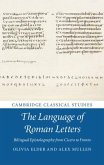THE MEN OF KENT
Sometimes I am rewarded for fretting myself so much about present matters by a quite unasked-for pleasant dream. I mean when I am asleep. This dream is as it were a present of an architectural peep-show. I see some beautiful and noble building new made, as it were for the occasion, as clearly as if I were awake; not vaguely or absurdly, as often happens in dreams, but with all the detail clear and reasonable. Some Elizabethan house with its scrap of earlier fourteenth-century building, and its later degradations of Queen Anne and Silly Billy and Victoria, marring but not destroying it, in an old village once a clearing amid the sandy woodlands of Sussex. Or an old and unusually curious church, much churchwardened, and beside it a fragment of fifteenth-century domestic architecture amongst the not unpicturesque lath and plaster of an Essex farm, and looking natural enough among the sleepy elms and the meditative hens scratching about in the litter of the farmyard, whose trodden yellow straw comes up to the very jambs of the richly carved Norman doorway of the church. Or sometimes 'tis a splendid collegiate church, untouched by restoring parson and architect, standing amid an island of shapely trees and flower-beset cottages of thatched grey stone and cob, amidst the narrow stretch of bright green water-meadows that wind between the sweeping Wiltshire downs, so well beloved of William Cobbett. Or some new-seen and yet familiar cluster of houses in a grey village of the upper Thames overtopped by the delicate tracery of a fourteenth-century church; or even sometimes the very buildings of the past untouched by the degradation of the sordid utilitarianism that cares not and knows not of beauty and history: as once, when I was journeying (in a dream of the night) down the well-remembered reaches of the Thames betwixt Streatley and Wallingford, where the foothills of the White Horse fall back from the broad stream, I came upon a clear-seen mediaeval town standing up with roof and tower and spire within its walls, grey and ancient, but untouched from the days of its builders of old. All this I have seen in the dreams of the night clearer than I can force myself to see them in dreams of the day. So that it would have been nothing new to me the other night to fall into an architectural dream if that were all, and yet I have to tell of things strange and new that befell me after I had fallen asleep. I had begun my sojourn in the Land of Nod by a very confused attempt to conclude that it was all right for me to have an engagement to lecture at Manchester and Mitcham Fair Green at half-past eleven at night on one and the same Sunday, and that I could manage pretty well. And then I had gone on to try to make the best of addressing a large open-air audience in the costume I was really then wearing—to wit, my night-shirt, reinforced for the dream occasion by a pair of braceless trousers. The consciousness of this fact so bothered me, that the earnest faces of my audience—who would NOT notice it, but were clearly preparing terrible anti-Socialist posers for me—began to fade away and my dream grew thin, and I awoke (as I thought) to find myself lying on a strip of wayside waste by an oak copse just outside a country village.
Sometimes I am rewarded for fretting myself so much about present matters by a quite unasked-for pleasant dream. I mean when I am asleep. This dream is as it were a present of an architectural peep-show. I see some beautiful and noble building new made, as it were for the occasion, as clearly as if I were awake; not vaguely or absurdly, as often happens in dreams, but with all the detail clear and reasonable. Some Elizabethan house with its scrap of earlier fourteenth-century building, and its later degradations of Queen Anne and Silly Billy and Victoria, marring but not destroying it, in an old village once a clearing amid the sandy woodlands of Sussex. Or an old and unusually curious church, much churchwardened, and beside it a fragment of fifteenth-century domestic architecture amongst the not unpicturesque lath and plaster of an Essex farm, and looking natural enough among the sleepy elms and the meditative hens scratching about in the litter of the farmyard, whose trodden yellow straw comes up to the very jambs of the richly carved Norman doorway of the church. Or sometimes 'tis a splendid collegiate church, untouched by restoring parson and architect, standing amid an island of shapely trees and flower-beset cottages of thatched grey stone and cob, amidst the narrow stretch of bright green water-meadows that wind between the sweeping Wiltshire downs, so well beloved of William Cobbett. Or some new-seen and yet familiar cluster of houses in a grey village of the upper Thames overtopped by the delicate tracery of a fourteenth-century church; or even sometimes the very buildings of the past untouched by the degradation of the sordid utilitarianism that cares not and knows not of beauty and history: as once, when I was journeying (in a dream of the night) down the well-remembered reaches of the Thames betwixt Streatley and Wallingford, where the foothills of the White Horse fall back from the broad stream, I came upon a clear-seen mediaeval town standing up with roof and tower and spire within its walls, grey and ancient, but untouched from the days of its builders of old. All this I have seen in the dreams of the night clearer than I can force myself to see them in dreams of the day. So that it would have been nothing new to me the other night to fall into an architectural dream if that were all, and yet I have to tell of things strange and new that befell me after I had fallen asleep. I had begun my sojourn in the Land of Nod by a very confused attempt to conclude that it was all right for me to have an engagement to lecture at Manchester and Mitcham Fair Green at half-past eleven at night on one and the same Sunday, and that I could manage pretty well. And then I had gone on to try to make the best of addressing a large open-air audience in the costume I was really then wearing—to wit, my night-shirt, reinforced for the dream occasion by a pair of braceless trousers. The consciousness of this fact so bothered me, that the earnest faces of my audience—who would NOT notice it, but were clearly preparing terrible anti-Socialist posers for me—began to fade away and my dream grew thin, and I awoke (as I thought) to find myself lying on a strip of wayside waste by an oak copse just outside a country village.









